|
Wan Nabil Ikram is a final-year law student at the Faculty of Law, University of Malaya (‘UM’). The trek within one’s time in university is often perceived as a linear progression, but for Ikram, his journey conscientiously weaves through each and every one of his diverse roles within the Faculty and beyond. From his simultaneous feats as the Vice Director of Lex Ordinem and Vice President of the University of Malaya Law Society (‘UMLS’) to his endeared role as the Class Representative for Batch 46, Ikram’s presence as the mindful middleman is one that is treasured by friends, peers and Faculty staff alike. His ever-developing curiosity has also led him to discover himself through different forms of advocacy and even more recently, student activism as the co-founder of Haksiswa. Ikram remains compassionate and holds on to a kind sincerity without compromising his mental and physical well-being through it all. Simply put, where inquisitiveness and passion lead — Ikram follows. On the surface, one might mistake Ikram as a person of scrupulous values and military discipline. Such external observation, however, contrasts his quick-to-smile and affable nature. Unbeknownst to many, the practised ease with which he carries himself was not always the case. Ikram’s upbringing did not reflect that of a typical Malaysian due to the time he spent as a child in the United Kingdom while his mother completed her PhD. Although being immersed in an English environment had equipped him with a worldly view on matters from a tender age, it also transformed into its own form of personal stumbling blocks upon his return home. With language barriers and cultural differences unravelling in young Ikram’s schooling life, he soon found himself at the brunt end of it all — isolated from his peers as a mere outsider. Having gone through hurdle after hurdle to integrate himself back into the Malaysian society, Ikram entered boarding school with a quiet hope that a change of environment would provide a second chance to solidify his footing in the community around him. True enough, it was there that his sense of self began to take shape. Interestingly, at that time, his affinity towards the arts of technical drawing and the prospect of emulating his father’s footsteps in the architectural and engineering-related field initially led Ikram to mould the next course of his life. Life, on the other hand, ever full of its surprises, had a different vision for him. It is certainly not uncommon for secondary school graduates to place sentimental value on the day they receive their Malaysian Certificate of Education (‘SPM’) results, as it often serves as a road sign for the upcoming route ahead. Ikram is no exception to this sentiment. With his SPM results not quite allowing him to pursue his initial preference of architecture and engineering, that fateful day meant recalibrating the trajectory of his future education — a journey of self-introspection that many youths are indubitably nervous about embarking upon. Fortunately, as the eldest child of two in a close-knit family, he did not have to venture alone. Whenever he was troubled before the crossroads, the honest discussions with his family never failed to serve as his life’s innate compass. ‘Even if I am still nervous as to what option or alternative to take, at the very least, I have tried to talk it out with my family,’ he shares warmly. Eventually, it was his established background in debate — a pursuit that would later become one of the many defining traits of his tertiary education — that inclined him to apply for Foundation in Law at Universiti Teknologi MARA (‘UiTM’). He admits candidly that he held the same naïve perception of the law that newcomers normally shared upon stepping foot into the realm of legal education — impulsively equating the law to the service of justice. The truth gradually dawned upon him that the reality was not as clear-cut as it seemed. Instead, grey areas rampantly proliferate beyond the spheres of black-letter laws. However, these obstacles in understanding the practicability of the law unearthed his enthusiasm to prove himself in this field. It was this very goal that catalysed his decision to apply to UM law school. ‘Whatever I went through during high school, I knew that I could be better than that. I feel like I could really be someone.’ Four years down the line with diverse accomplishments trailing behind, Ikram muses that he had never actually foreseen practising such a versatile approach in his extracurricular pursuits. Regardless, Ikram was no stranger to the mounting pressure most freshmen feel upon entering the Faculty. The advice given by well-meaning seniors on extracurricular participation trickled down into the ocean of fresh opportunities before him. Determined to make decisions cautiously with neither haste nor pressure, Ikram channelled the lively buzz around him, eventually resolving to put his best foot forward in the University of Malaya Moot Club (‘UMMC’) as a member of the Marketing Bureau. What began as a stepping stone for him into the domain of Faculty clubs and societies quickly turned out to be a sound investment on his end. His natural aptitude for conversing with others, be it in a professional or social capacity, was the instrument that helped him successfully rise through the ranks — during his second year, he became the Head of the Marketing Bureau. The UMMC spearheads two annual flagship events, namely the ‘Route 2 Moot’ programme and the Internal Moot Competition. Ikram shouldered the vital duty of reaching out and liaising with respected members of the legal fraternity in the hopes of establishing sponsorship opportunities for the club. While many may covet the opportunity to interact with the legal world as young aspiring lawyers, Ikram certainly did not take it lightly. To him, it was essential to tread delicately when discussing sponsorship and financial matters in the daunting presence of lawyers so as not to overstep any unseen boundaries. Though challenging, those pursuits ultimately bore fruit as his sensibilities in framing the long-term benefits for both parties bolstered his ability to communicate professionally with conviction, regardless of the topic at hand. As Ikram rounded the corner into his second year at university, he cast his mind back to the vast array of possibilities bestowed upon students at the Faculty. Though this time, he dispelled any personal reservations in committing to clubs. Eager to discover what else awaited him, he once again explored other organisations. ‘It was my curiosity that got to me and pushed me to try something new. However, at the same time, it definitely did not come at the expense of my already existing commitments.’ Ikram’s proficiency in intercommunication was once again put to the test — this time through a different medium as he assumed the role of Secretary for the Asian Law Students’ Association of University of Malaya (‘ALSA UM’). Although his time with ALSA UM was brief, the skills he picked up along the way, such as drafting official letters and corresponding with administrative staff, remain with him to this day. The proposition of sifting through voluminous amounts of paperwork might be enough to jostle anyone out of taking up the position as Secretary. Ikram, however, remains grateful that he honed this dexterity from his early years in law school. Indeed, in the grand scheme of things, secretarial blunders when corresponding with external parties, especially as a budding lawyer, would ‘paint a bad picture towards who you are as a person,’ Ikram remarks. Even as he paid tantamount attention to his roles in the UMMC and ALSA UM, there was still a missing puzzle piece that compelled him to reflect upon his takeaways from his orientation experience with Lex Ordinem. Without fail, Orientation Week always brings about its unique rush of vibrant eagerness from both ends — seasoned seniors embracing the incoming batch of students with open arms, coupled with the reciprocity of effervescent freshmen who enter wide-eyed into the Faculty. While the gruelling Orientation Week programme is a tradition passed down with wholly altruistic intentions, Ikram at the time could not help but feel overwhelmed by the expectations beset upon the first years from the get-go. He remained pensive on the matter, which ultimately led him to apply for a position in the Disciplinary Bureau of the Lex Ordinem Committee. Ikram’s recurring involvement in Lex Ordinem for the past three years is just one of the many things that indicate the significance and affection he holds for the initiative. In 2019, Ikram was presented with a window to tackle that very apprehension he felt in the first place — this time, through his capacity as the Vice Director of Lex Ordinem. It seemed nearly impossible to ease the intimidating culture of Orientation Week. Furthermore, the bureaucratic hurdles that often came hand-in-hand with event planning were yet another arduous battle that laid ahead. Regardless, there was little that could hold back the unified assemble of his committee. Their hard-fought battle to breathe new life into Orientation Week was not in vain, and Ikram is grateful that it remains an ongoing effort from seniors to band together to provide a safe introductory environment for the freshmen. ‘Lex Ordinem meant a lot to me personally and my team as well because we set out to make a change. We believed that first years should be able to step into law school knowing that they are welcome to learn in an environment without being too pressured or burdened with what the seniors have to say — and I hope my tenure had successfully instilled that.’ Ikram with the High Committee of Lex Ordinem 2019/2020, comprising Ms Nur Ili Batrisyia Yahya, Ms Christina Erin Ong, Ms Sara Jane Jayamana and Mr David Lee Ikram was keen on continuing this momentum of moulding his own leadership style. Thus, with courage, he stepped up as the Vice President of UMLS. Bestowed the title of second-in-command for two renowned committees in the Faculty, Ikram was given invaluable insight on how leadership — centre-stage and commanding it may seem — can be equally exercised behind the scenes as well. For example, his experience as Vice President was embedded with constant observation on the challenges the executive committee faced from as many angles as possible. Understanding that his role was more complementary than assertive, perspective was the key Ikram needed to identify the loopholes and details that the President may have overlooked. It involved inspecting minor gears within the whole operating system that were critical for the smooth running of events. Meanwhile, his role as the Vice Director of Lex Ordinem was one that also enhanced his ability to offer a fresh pair of eyes. Whenever dissenting opinions arose among the board members, it was his responsibility to balance both stances to suggest a common ground. Ikram alongside Mr Miw Zhong Heng, Mr Nevyn Vinosh, Ms Iffah Afrina and Mr Geoffrey Jerry — the High Committee of the University of Malaya Law Society 2019/2020 When it came to embracing what was expected of him from these two roles, Ikram amusingly admits that the role of a negotiator was definitely not foreign to him. Indeed, with all his formidable titles over the years, perhaps the one that his peers are most familiar with is his crucial role as the Class Representative for the current final-year law students of the 2017/2018 intake. Humorously, the bestowment of this critical responsibility was rather involuntary and unceremonious; his name was randomly nominated by an old college buddy during Orientation Week, and he has since resigned to commit to the role. Nonetheless, Ikram has held on graciously despite the trials and tribulations that came with it. During his first year, he found it particularly frustrating as the presence of his authority and mandate as the Class Representative was often questioned — or worse yet, overlooked. He was admittedly perplexed by the situation; every output of effort that he poured into helping his batchmates often returned with some input of dissatisfaction. Still, he kept to it, even though the challenges continued to expand throughout the years. He cites the intense and competitive registration of elective tutorials for the third and fourth-year students as one of the more turbulent situations he had to diffuse. Upon confiding in his closest friends, Ikram knew that the only option was to be more assertive of his position as the Class Representative and be mindful to not arbitrarily overstep the lines that could too easily be blurred. Fortunately for Ikram, his role as the main bridge of communication between Faculty staff and his batchmates became his second nature. Regrettably, this feat costed a few friendships along the way due to unresolved disagreements. Be that as it may, Ikram finds solace in the knowledge that although some may personally disagree with his decisions, the consensus of his batchmates has always prevailed. ‘The task of being a Class Representative might seem like a simple task, but when strong differing opinions materialise, reaching a collective agreement may not be as easy as it seems. At the end of the day, it was a good experience in learning to balance different needs among my batchmates.’ Ikram’s advice when determining whether a commitment should be taken is as simple as imagining oneself handling both short and long-term obligations of that role and whether the initial motivation will be able to persevere throughout one’s tenure. Setting peer pressure aside, he believes that one’s happiness in doing something should be the determining factor in mapping out the next step. As for the actual challenge of balancing one’s responsibilities, Ikram practices the simple principle of finding a balance in everything he does. By installing his own internal system of weighing out the urgency and priority of all his commitments, he has managed to keep up his repute of being a reliable team player to his colleagues. Ikram with the University of Malaya Law Society Executive Committee 2019/2020 at the 33rd Sultan Azlan Shah Law Lecture in 2019 Having strong roots in debate, Ikram’s consistent participation in debate competitions and active involvement in numerous debate clubs led him to clinch great victories and learn valuable lessons. His flicker of interest towards the art of debating was sparked by his father, an argumentative person who always challenged his opinions. In the beginning, he was rather reluctant to dive into the sport fully; the more vigorous thought process required of a debater demanded an adjustment period on his part. Ikram later learnt that he was able to better express his thoughts and perspectives through debate. His passion carried him to great heights — most notably in his participation in the Malaya Australs 2018, one of the most prestigious competitions in Southeast Asia and Europe. He fondly reminisces being fascinated at how a debater’s local culture and background could be reflected in their distinct debating styles. Ikram with his teammates, Mr Puven and Ms Ameerah, for the Malaya Australs 2018 His active involvement in the debating scene eventually led him to become an adjudicator for debating tournaments — namely the Debat dan Pidato Yayasan Selangor. Distinguishing adjudicating from debate, Ikram appreciates the freedom and opportunity to objectively look at a motion with a bird’s-eye view before making sound decisions that consider all the arguments raised by both the opposition and government. However, as awe-inspiring as his feat in both the Malay and English debate scene, it did not come without challenges. Ikram notes that the language barrier caused certain difficulties in explaining concepts; it was not always easy to translate between both languages. However, in his second year of university, Ikram decided to take a break from all-things debate. He felt that he had already learnt as much as he possibly could have, and pursuing debate even further might not aid him as much in the future. ‘That was when I had to make a big decision to stop going down this road. It has definitely taught me a lot in being analytical and articulate — but it was time for something new.’ With that in mind, Ikram joined the Internal Moot Competition and emerged as a semifinalist alongside Aqilah Nasrin, Azureen Ibrahim and Chin Wei Song in his very first mooting endeavour. Although his prior debate experience aided him in navigating the unfamiliar waters of mooting, he notes that mooting contains more regulations compared to the former. The combination of both mechanical and creative aspects in mooting is something that he cherishes, as putting forth interesting arguments is just as important as their relevancy to the provided facts. Furthermore, upon receiving encouragement from his friend David Lee, Ikram got his first taste of mediation through the ALSA International Mediation Competition with his teammates — Irdina Damshal, Illianie Mohd Taib and Zafirah Jaya. Differing entirely from mooting and debating, mediation is centred on resolving whatever dispute at hand instead of winning an argument. Ikram truly enjoyed negotiating and finding the middle-ground between the stances taken by each party, akin to his often-played roles within the Faculty. Though each form of oral advocacy presents a unique experience, he considers mediation his favourite and sets it to be an alternative career path that he might pursue in the future. It is no doubt that with his numerous accolades, Ikram has been frequently invited to moderate or speak at events. Being a panellist was nerve-wracking for him as he was unfamiliar with speaking on public platforms, such as webinars. Despite this, Ikram ensured that his content was relevant and highly engaging. On the other hand, moderating required more preparation as the moderator bore the responsibility of acting as the anchor in guiding and directing the flow of the session. Besides, it also required him to be highly attentive and critical during sessions so he could direct questions at the panellists later on. Ikram as the moderator for ‘Career Discovery Series: Career Talk’ organised by the University of Malaya Law Society and the Faculty’s alumni association, Pertubuhan Alumni Rumpun Fakulti Undang-Undang Universiti Malaya (‘PARFUM’) Despite his experience and familiarity with many different forms of oratory activities, Ikram claims that he occasionally feels the dash of stage fright. He shares that in order to overcome it, one must have full faith and be prepared. ‘Be prepared and be yourself. You do not want to be talking about things you do not actually believe in.’ Upon heading into his final year at UM, Ikram traced all the different paths he embarked on since the beginning. Even with his accomplishments encircling such a wide array of passions, he knew there was one last road that has yet to be traversed for him: the valorous venture into student activism. Since his first year, his curiosity had been piqued by the spirited environment that always seemed to follow wherever the campus politics scene went. With the high spirits, however, came the high demands of being a student activist — a cost that Ikram was afraid might encroach on his existing commitments. Over the years, that curiosity did not dim but rather fueled even more by his close friends who have become the leading faces at the frontiers of student activism in UM, such as Farhan Amran, Haziq Azfar Ishak and Umar Hafiz. ‘The things that they have fought for have positively vouched for the well-being of students, which is something that I really respect. I do not think that what I am doing could ever amount to what some of my friends have contributed to the welfare of students, but I figured that if I could contribute in any way possible, then I might as well set out to do it.’ Ikram’s introduction to the premise of student activism came in the form of a UMLS announcement inviting students to participate in the Youth Advocacy Academy on Freedom of Expression 2020 organised by the Malaysian Centre for Constitutionalism and Human Rights (‘MCCHR’). Upon signing up for the semester-long programme, he was immediately immersed in the course’s syllabus: how it was primarily focused on freedom of speech nuanced to different facets such as hate speech, online gender-based violence and the right to information. After weeks of sharing sessions by relevant experts and completing the assignments tasked to the 30 participants, Ikram’s genuine diligence had not only given him a renewed understanding of activism, but also bestowed him the impressive Valedictorian award. His involvement in activism was not limited to just participating in informative programmes; it even extended to him courageously implementing ideas into action — evidenced by his role as the co-founder of Haksiswa, a student-led body that aims to generate public awareness on the significance of championing the rights of students. Together with Tan Jia Shen, Anson Liow and Nevyn Vinosh, the four visionaries put their minds together to formulate the three pillars upon which Haksiswa was envisioned. The first is advocacy: the persistent advocation for student rights. Secondly is policy, whereby their initiatives would be mainly aimed at reviving the conversation on the Universities and University Colleges Act (‘AUKU’) 1971. Recognising that they were entering an arena of discussion that other organisations have long battled, Ikram holds on to the hope that Haksiswa would provide a unique perspective by acting as a bridge between other student bodies. This shifts the fight for student rights from an individualistic approach to a collective one. The third is Haksiswa Student Legal Aid, consisting of a network of competent lawyers sympathetic to their cause. ‘With that mechanism in place, at least it will give comfort to student activists if the need arises to protect them from any punitive or disciplinary action taken against them. It is a battle that sees no end, but it is one worth fighting for because students need to have a say in how their lives are decided.’ Ikram representing Haksiswa at the ‘AUKU Roundtable Discussion: Amend or Repeal’ with other student bodies Beyond that, Ikram is also currently focused on his role as a researcher and editor for YPolitics. His day-to-day responsibilities as part of the team are mainly centred around researching content on trending legal, technological and infrastructure-related topics and subsequently packaging them into bite-size portions for social media consumption. His role at YPolitics has not only aided him in understanding the interplay between the law and politics, but has also made him realise the gravity of providing verified sources of information to educate the masses. ‘There is too much information out there, and sometimes it can be overwhelming. That is what we aim to tackle over at YPolitics.’ Another testament to his tenacity in developing his passions, no matter how niche, is his recent success in bagging the Finalist Award and Best Application Essay Award alongside David Lee and Zafirah Jaya for the JusTech Law Reform Competition 2021 on cryptocurrency regulations. His experience in the competition was a fruitful one. Although he had read about cryptocurrency generally, this platform allowed him to understand the implications of this area of law on the everyday lives of citizens. His increased interest in technology media and telecommunications is something that he wishes to nurture beyond his time in the Faculty. Coupled with the invaluable lessons he had acquired as a Student Advisor for the UM Legal Aid Clinic (‘KBGUM’) and during his time interning in various law firms since 2018, Ikram shares his aspirations to undergo pupillage in law firms that have a strong grasp in this field. Even so, he wishes not to limit himself in the future — carrying on his ever-versatile approach wherever he goes. Ikram during his first internship at Azmi & Associates in 2018 With the days of Ikram’s final semester in the Faculty ticking away, he laments not being able to embrace campus life one last time with friends who have been with him through every ebb and flow of the past four years. He appreciatively credits his personal growth to people that played a massive part in his journey as a UMMC member, ALSA UM Secretary, UMLS Vice President and Lex Ordinem Vice Director. It is with these individuals that Ikram honed an abundance of valuable skills and experiences. While he is focused on ending his degree on a high note in terms of his academic performance, he also finds closure in the fact that he has managed to cover so many bases before this final home run stretch. Parallel to how he managed to juggle all his responsibilities, Ikram still emphasises the importance of balance, especially when it comes to online learning. While this is easier said than done, he tries his best to keep to his system of organising things based on urgency and priority, so he is able to step away from his computer screen for a moment to relish the little things in life — be it sitting down for three square meals a day or tuning in to a Chelsea football match during the weekends. ‘I know people who were vibrant when they first entered law school but are completely burnt out towards the end of their studies. When you throw yourself into so many things but do not prioritise your own personal well-being, what is the point?’ Ikram enjoying futsal, his favourite pastime, with his friends and a few alumni at the Faculty To those struggling in keeping up with virtual lessons, especially the first-year students who have yet to step into the Faculty, Ikram extends these heartfelt words: ‘Be strong. I would definitely be overwhelmed with difficulties as well if I were in your position. When one cannot even see the faces of batchmates sharing the same classes, it is indeed difficult in various aspects. In these troubling times, I think it is important to always try to find ways to love yourself. Do things you enjoy inside and out of university, and remember that you have a life beyond your screen.’ Ikram with his closest band of friends, all of whom have inspired and followed him throughout his time at the Faculty Written by Ashley Khor.
Edited by Azra Athirah. Reviewed by Celin Khoo Roong Teng and Luc Choong Guong Sang.
1 Comment
I wanted to express my gratitude for your insightful and engaging article. Your writing is clear and easy to follow, and I appreciated the way you presented your ideas in a thoughtful and organized manner. Your analysis was both thought-provoking and well-researched, and I enjoyed the real-life examples you used to illustrate your points. Your article has provided me with a fresh perspective on the subject matter and has inspired me to think more deeply about this topic.
Reply
Leave a Reply. |
Archives
July 2023
Categories
|
|
|
PhoneTel : +603-7967 6511/6512
Fax : +603-7957 3239 |


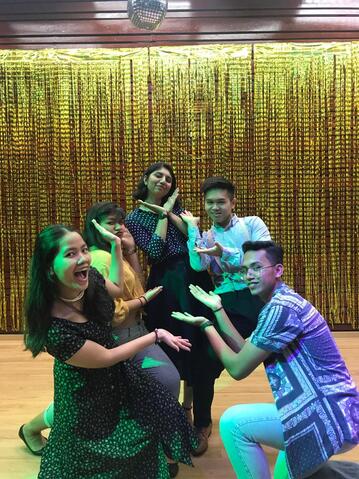
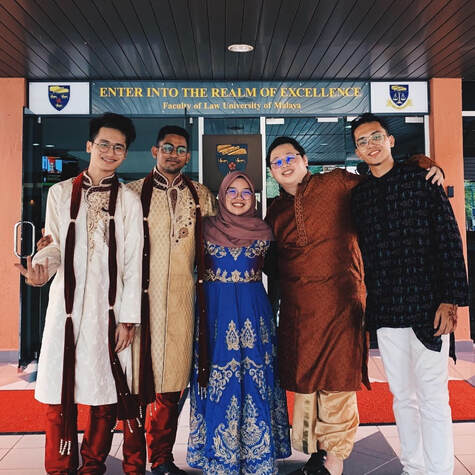
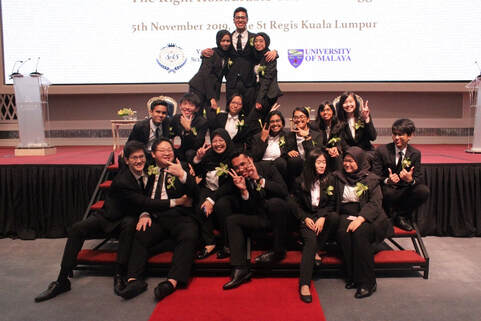
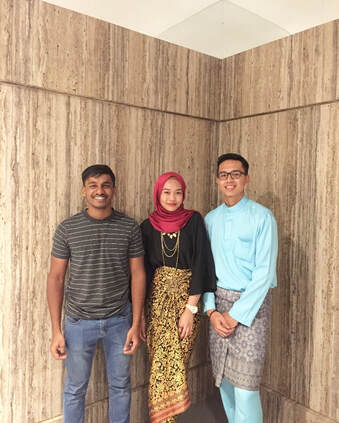
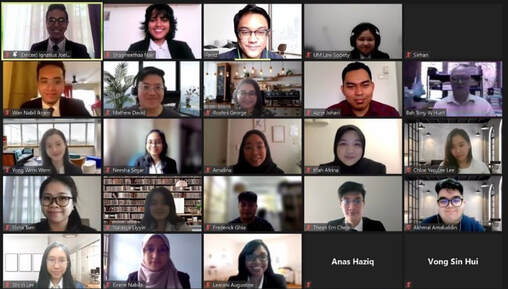

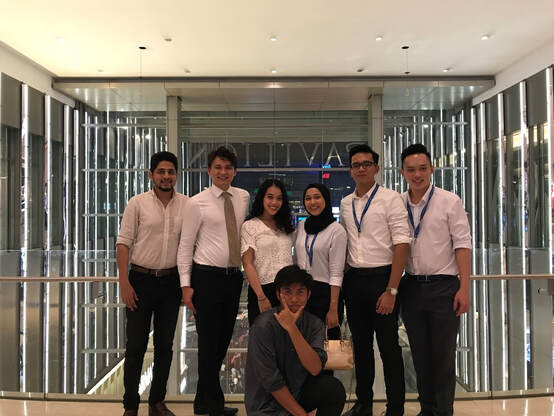
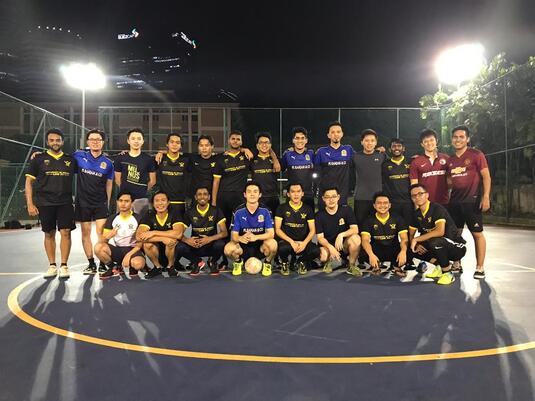
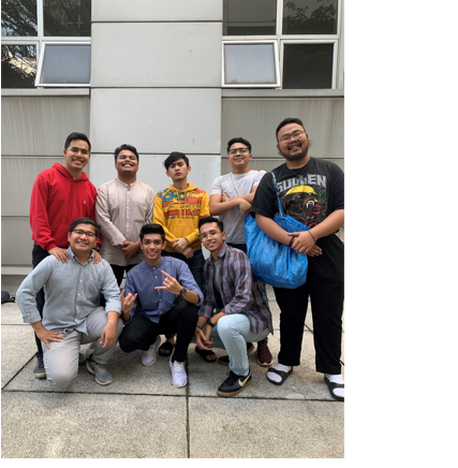
 RSS Feed
RSS Feed